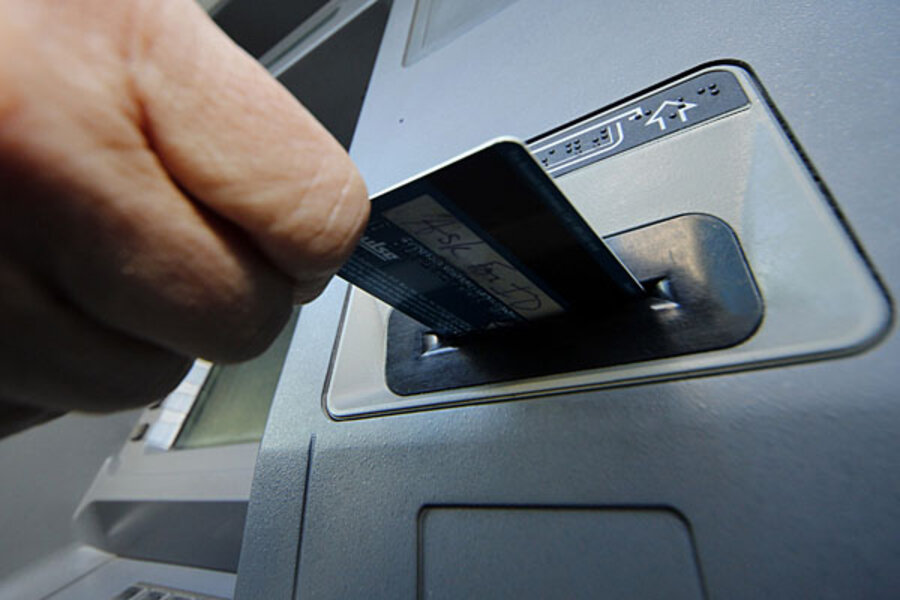Watch out: hidden fees hitting flight tickets, banking
Loading...
AT&T made headlines last week by imposing a new $0.61 monthly "Mobility Administration Fee" to help cover its "interconnection and cell site rents and maintenance" expenditures — you know, the costs of operating as a wireless service provider. It might be unsurprising to learn, however, that Verizon and Sprint already charge such administrative fees, on top of monthly taxes for vague things like "regulation" and "universal service."
These "below-the-line fees," which are added to a base price for essential or mandatory services, are an easy way for companies to charge more without officially raising its prices. That way, they can still advertise more attractive prices to customers. And though the new AT&T fees are just cents to the consumer, they add up. The Wall Street Journal estimates that AT&T could make more than half a billion dollars annually from its new fee.
But wireless service providers aren't the only companies slipping in extra charges to the consumer. Some banks, colleges, airlines, and other utility service providers hit customers with below-the-line or hidden fees. But there may be something you can do about it.
Free Overdraft Protection That's Not Really Free
Ah, banks and their fine print. The federal government has limited a bank's ability to charge customers for merely swiping their debit cards, and Bank of America famously had to bow to public outrage when it tried to charge customers $5 a month for the privilege of actually using their debit cards. But are banks still finding ways to slip in fees?
Allison Kade at LearnVest reminds us that having a negative account balance can still be costly, as overdraft protection can sometimes carry a hidden price. Overdrawing your account can cost $25 to $30 per incident. Even "free" overdraft protection might incur a cost, as the bank may charge high interest on the small loan you are given to cover your spending. Luckily this can all be avoided by linking a checking account to a savings account at the same bank so that you can automatically transfer money between sources when needed.
The Freshman Fee
College tuition itself is expensive, even without factoring in the cost of housing and the cost of living. Despite the financial strain on many students and their families, many universities have instituted massive mandatory fees in an attempt to increase revenue without officially raising tuition itself. Marian Wang at ProPublica reports on universities charging additional fees for everything from entering college as a freshman, to a "pedestrian fee" for upkeep of sidewalks. Many of these fees exist under vague titles like "academic excellence" or "special institutional fees," which seem indistinguishable from tuition itself. One of the worst offenders, UMass Amherst, no longer even distinguishes between tuition and fees on its website.
Cable and Internet Service Charges
When just a handful of cable companies offer TV, phone, and internet service in an area, they can exert a lot of control over what they charge customers. Many low, introductory plan prices may not include HD or DVR capabilities and rarely cover installation or the actual cable box itself. Similarly, some providers are now charging monthly fees for their modems, which were previously offered for free. To save a little money on monthly charges, look for options to buy the hardware outright.
Airline Fees
Airlines just might be the masters of hidden and below-the-line corporate fees. Thanks to federal legislation that went into effect last year, airlines and travel websites must now display prices including all taxes and fees, but that hasn't stopped the companies from cramming in some truly opaque charges.
Delta Airlines takes the cake for arbitrariness with its "International Surcharge," which one customer found went up 50% over night, and comprised almost half of the whole ticket price. Other charges across a variety of airlines include hefty fuel surcharges and booking or convenience fees, no matter how you book: online, by phone, or in person. Perhaps most surprisingly, CNN found that a wide array of carriers — from budget airlines to major companies like British Airways — charge up to $8.60 to purchase a ticket with a credit card.
Airlines have also unbundled just about every perk and service from their flights, charging extra for checked bags, food and beverages, wireless internet, reserved seating, and even carry-on bags in some cases. Many carriers have also made ticket change fees so high as to be impractical; oftentimes you're better off eating the cost of the original flight and booking a separate one-way ticket. But with proper planning, these fees should be optional and avoidable.
While some of these hidden fees and extra charges can be avoided with a little knowledge and some advanced planning, it's likely that many of these below-the-line costs passed onto consumers aren't going away anytime soon. And unfortunately additional fees may be on the horizon. It's therefore in consumers' best interest to not only take stock of the supplemental fees they may already be paying for, but also to urge companies to be honest about these hidden costs in the first place.







